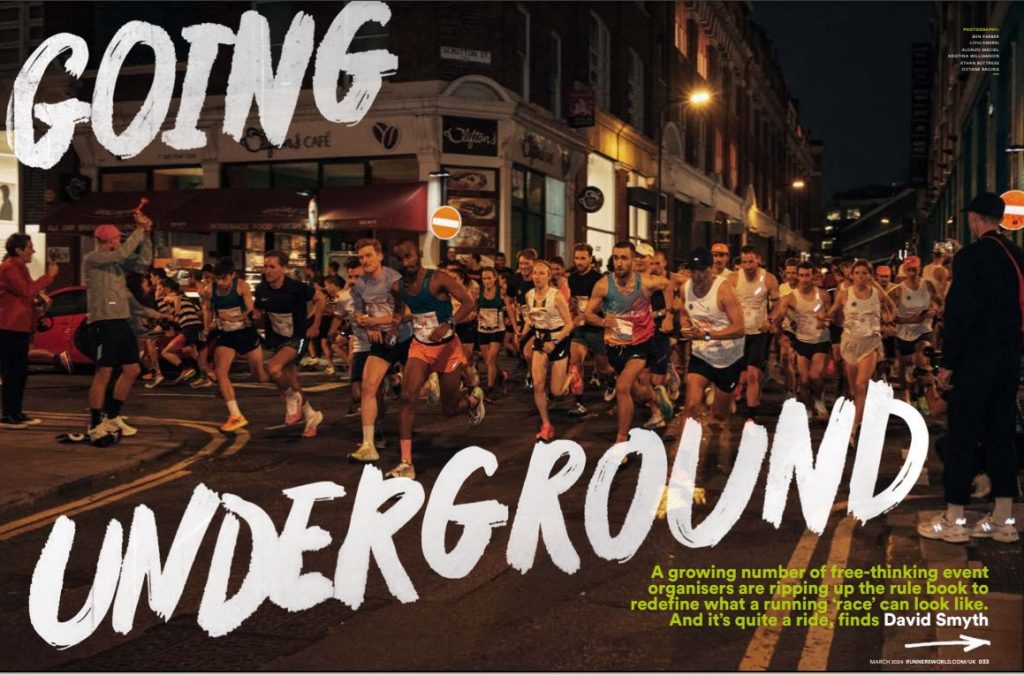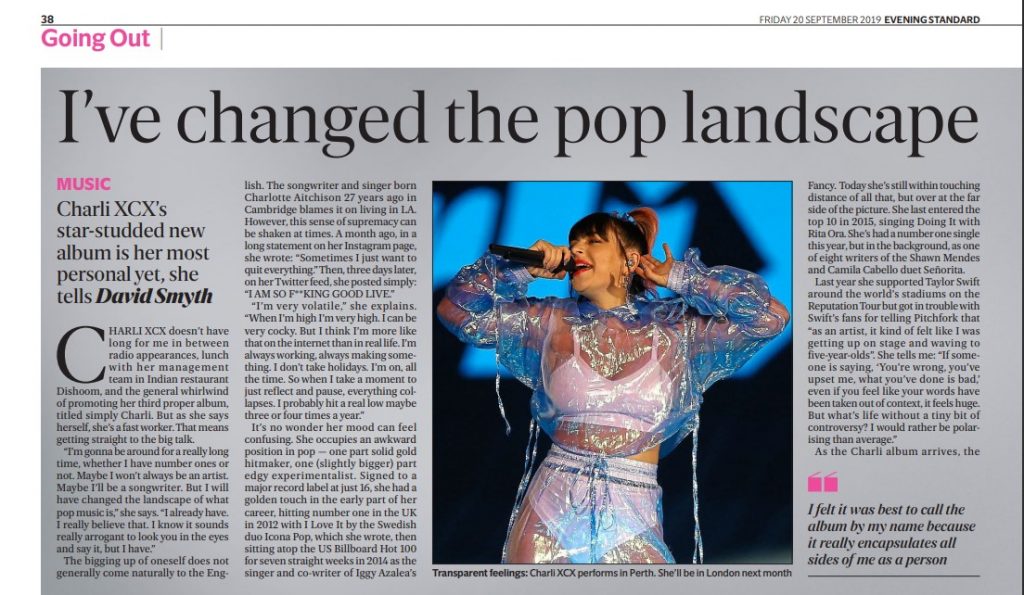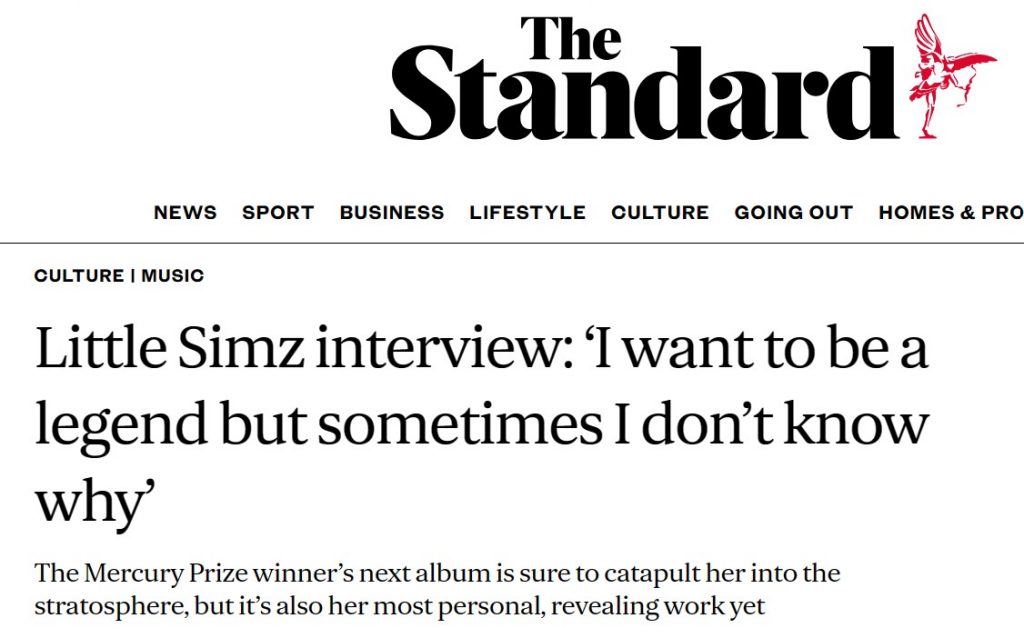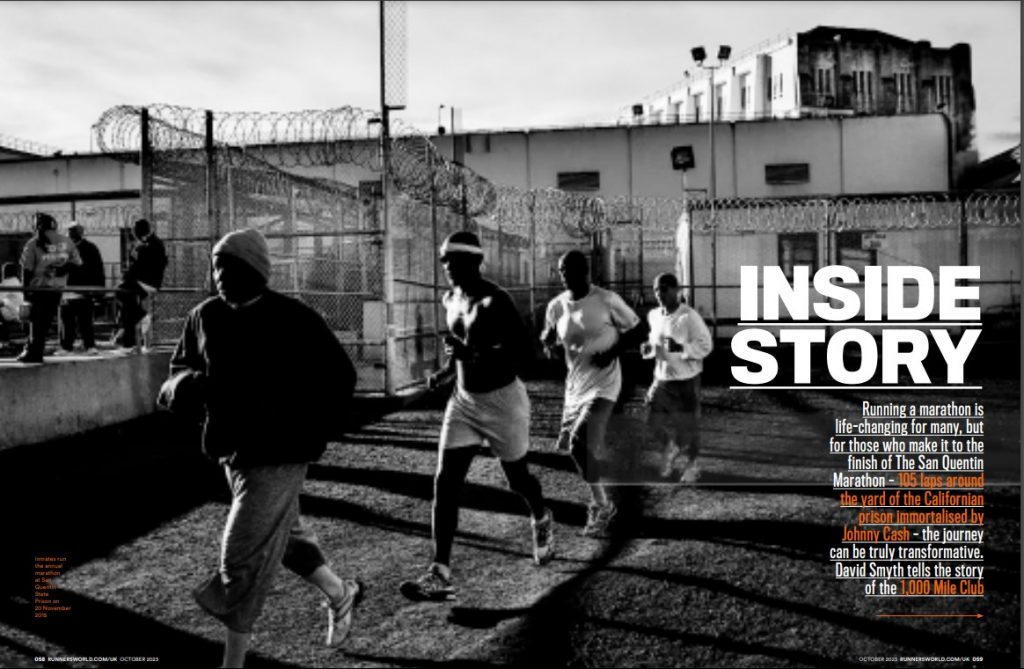You can measure Laura Mvula’s state of mind through her hair. She emerged in 2013, bald as a baby, with an extraordinary debut album of complex, jazzy, orchestral soul music. Sing to the Moon hit the top 10 and picked up BRIT, Mercury and Ivor Novello nominations, earning obvious comparisons with the big-selling female voices of this decade but also real greats such as Nina Simone and Billie Holiday. This shy, self-critical 29-year-old from Birmingham felt exposed. She began to grow her hair, wide and high.
“I’m not sure how natural a thing it is to exist so publicly as a human,” she says. “You were seeing my whole head creatively and literally. That became exhausting for me. It became so intense that to have hair on my head was one of the ways I could not let you see as much.”
Today, however, curled up catlike on a giant sofa in Shoreditch House, ordering and then ignoring a bowl of quinoa porridge, she’s dressed for battle: heavy black boots and a green bomber jacket, extravagant gold jewellery and dramatic black lipstick. Her hair is shaved close again and now dyed blonde. On the back of her phone it says “BAD BITCH”.
“Before, everything felt so ultimate to me,” she tells me in slow, thoughtful tones. “I’ve grown up a little bit, and also in taking the music more seriously I take myself a bit less seriously, which is helpful.”
She was honest the first time around about her anxiety, speaking of using the osteopath-developed “Lightning Process” for stress management. “It was useful in lots of ways but it feels like that was a long time ago now,” she says. She still sees a therapist, and has a mentor who helps her to move in the right direction. “I’m still on my journey. I’m very open about my struggles.”
But she seems ready to step out again now, with a second album just completed and in the diary for May. A London comeback concert next month was announced this week, with another bigger one for the summer soon to go on sale. I’ve heard six new songs. Somehow she’s expanded what was already a rich sound. The heavenly layers of voices, unexpected diversions, the warm brass and strings, are all there again, with the addition of buzzy analogue synths and energetic guitar lines. The London Symphony Orchestra are all over it and the Afro-disco of the comeback single, Overcome, features not one but two guitar giants: Nile Rodgers of Chic and Miles Davis collaborator John Scofield.
Mvula did not feel comfortable in such exalted company. She didn’t believe that Rodgers really wanted to work together when they first met on the BRITs red carpet in 2013. Perhaps that’s just something that musicians say to be polite. “I was like, ‘Okay, yeah, sure.’ Is that a thing that can happen? Is that an option?” When Scofield came to her session at Electric Lady Studios in New York, she was too intimidated to speak to him. “I became mute. I didn’t speak for 20 minutes. He turned round and said, ‘Honey, you gotta tell me what you want me to play.’”
Work on album two, now called The Dreaming Room, began tentatively. “Sing to the Moon was a near miracle to me, this finished tangible piece of work. To me that was like a life’s achievement. Emotionally and mentally I was spent. So when anyone said to me, ‘So what’s next?’ I would become really defensive.” She began work in the least pressurised space available: the home studio of her musical director Troy Miller, who was formerly Amy Winehouse’s drummer.
First, to set the tone, she came up with five short pieces of music, about 40 seconds each, recorded them on the basic production software Garageband and accompanied them with little videos she made on her phone. One was simply a clip of her flicking through a poetry book called Black is Beautiful by children’s author Ann McGovern. “Black identity is really important for me. That’s what’s on my heart now and has been in my subconscious for most of my life.” In 2014, she performed with Angelique Kidjo and Whoopi Goldberg at a tribute concert for the late South African singer Miriam Makeba at Carnegie Hall. Further on in the process, the video for Overcome has a strong African feel, with a black and gold colour scheme and vibrant group dancing.
It took a while for Mvula to relax into this looser sound. A classically trained former student at the Birmingham Conservatoire, she had already performed at the Albert Hall as a 14-year-old in a school orchestra, playing violin to the music of the Harry Potter films. It was Miller who suggested that she start messing around with some old analogue synthesizers. “I’m a starter and Troy is a finisher. The whole process, we’ve been fumbling our way.”
Sometimes, in amid the struggle, she would get “wow moments”. A new song called Show Me Love came quickly at the piano on an otherwise uninspired day. It’s a hymnlike ballad that swells to mighty proportions. “It’s become the cornerstone of the record. I felt like the tone of The Dreaming Room was set then,” she says. She sits up and becomes far more animated, looking at the ceiling as she grasps for the words to describe what this album has ended up meaning to her.
“When I listen to this music, from beginning to end… I hate the term ‘give life’ but I can only say that I always feel different afterwards than I did before. There’s an old church song we used to sing at funerals: It is Well With My Soul. When I listen to this music I feel whole. I feel so at home in myself and as I relate to the whole world. I feel comfortable, I feel okay.”
That’s a great feeling to have when her life has changed so much. She’s recently moved to Dalston. She’s become reconciled with her father, the subject of her heartbreaking earlier song Father, Father, who was estranged around the time of her first album. When asked about her husband, opera singer Themba Mvula, she replies: “I feel like I’m not ready to talk about that yet. I think I will at some point.” What’s more grounding is the fact that her younger siblings, James and Dionne, are still in her band and play on the new album, and her mum is still in her childhood home in Birmingham. “It sounds silly but it’s really easy to forget that you can just go home. Sitting in the garden, the peace and quiet is bizarre. I find a different rhythm.”
There won’t be much time for that when the next phase begins and she has to find a way to present her extravagant new songs in a live setting. She ended up remaking her first album with the Dutch orchestra Metropole Orkest, which she says is closer to how she really wanted it to sound. There’s even more going on in the new one. “I’ll say again and again, and I hope you put this in the interview: this is the hardest I’ve worked on anything,” she stresses. “I was sort of delirious at the end.” But with hard work comes great rewards. Laura Mvula should get what she deserves this year.
March 22, Islington Assembly Hall, N1 (020 7527 8900, islington.gov.uk/assemblyhall)
Overcome (feat. Nile Rodgers) is out now on Sony. The Dreaming Room will be released on May 6.













